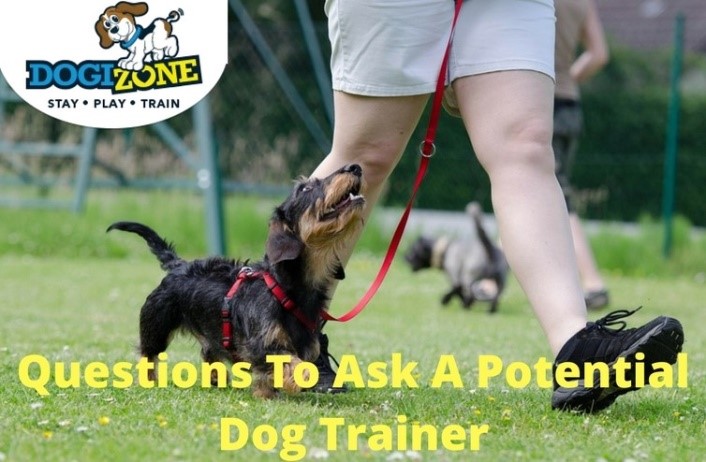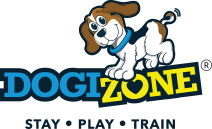Questions To Ask A Potential Dog Trainer
What To Ask A Dog Trainer
 Taking the time to get to know as much as you can about the professional services offered by a dog trainer is an important step in getting the right match for your dog and yourself.
Taking the time to get to know as much as you can about the professional services offered by a dog trainer is an important step in getting the right match for your dog and yourself.
Being a dog trainer is a lot more than just having a way with dogs or being able to address dog behavioral problems. It is also about being able to work with people, to communicate information in an effective and easily understood way, as well as working from a consistent philosophy or approach to training.
Reviewing the trainer’s website is a good starting point. This will give you an overview of the specific services the trainer offers. Most trainers will offer both group and private training sessions. For most dogs and puppies without socialization issues, the group training provides a wonderful experience, and it is also ideal for owners with limited to extensive experience with dogs.
However, even if the website and feedback look great, it is worth your time to give him or her a call and ask specific questions for clarification. This is extremely important if you are having training problems with the dog or puppy or if there are known issues you want to address during the sessions.
- What is your training?
There are specific types of certifications and training that professional dog trainers can complete. Most professionals will be members of the APDT or Association of Professional Dog Trainers or the CCPDT which is the Certification Council for Professional Dog Trainers. IACP or International Association of Canine Professionals is another organization offering training and certifications.
Many trainers also hold a pet first aid certification as well as training from other organizations, groups and associations. These certificates show commitment to the profession as well as a focus on professional growth and development.
- What is your training model?
Punishment and dominance training methods are not effective and can damage the emotional and mental well-being of a dog. Ask the trainer what training method or model they use and listen for words such as “positive,” “rewards based” and “reinforcement.”
Give the trainer a common scenario you are facing with the dog and ask how they would train the dog using their model. Make sure the methods they are suggesting are really positive and not punishment based and that you would be comfortable in using the same method.
- Experience with the specific issue?
Asking the trainer to talk about her or his experience with your breed of dog, their behavioral issues or the specific type of training you want is important. Watch for vague answers on experience and expertise and ask for references to back up their statements.
This is particularly important if you have a dog with a serious behavioral issue or if you want to train your dog for a specific type of event or competition. The more specific your training needs are, the more experienced the trainer should be.
Finally, ask about your participation in the training progress. Top trainers will encourage full owner participation in training and will be able to provide one-on-one or group sessions that fit into your schedule.
